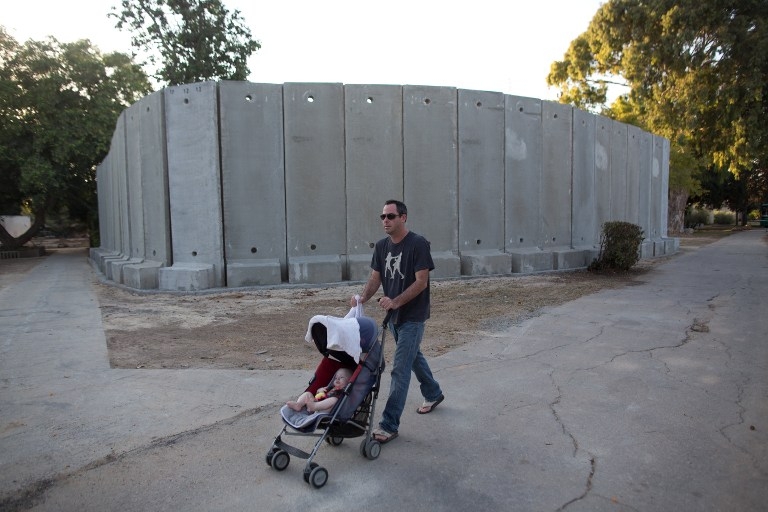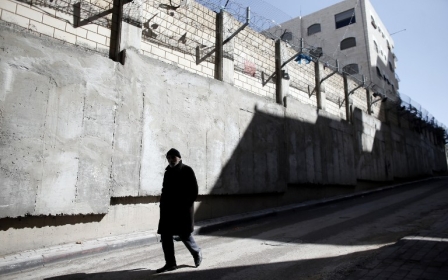Israel’s surrogate war in Mexico

MERIDA, Mexico - The Israeli “Law of Return” grants any Jewish person of non-subversive inclination the right to immigrate to Israel - thereby magically endowing an untold number of global inhabitants with a so-called “birthright” that is unavailable to Palestinian victims of that protracted exercise in ethnic cleansing and land theft known as Israeli statehood.
Obviously, all suffering is relative. But self-righteous Israeli moaning over Mexico’s effective decision to selectively stem human movement across borders is particularly grating
As I’ve noted before, the whole “right of return” myth has been exploited to justify diverse initiatives such as the immigration of a flock of Canadian sheep to Israel, while Palestinians physically born in the territory in question are denied even the hope of eventual homecoming.
Yet another unique twist to the concept of return has now arisen in Mexico, where the Mexican government has apparently decided to thwart the Israeli birthright of three infants born to Mexican surrogate mothers labouring on behalf of “three single Israeli fathers,” according to a recent article on the Haaretz website.
Mexican authorities have refused to issue birth certificates for the babies, which means the fathers can’t transport them to Israel as planned. The scenario will likely be replayed for the other eight Israelis reportedly in Mexico awaiting the arrival of their own offspring.
The article goes on to explain that homosexual citizens of Israel are prohibited from contracting the services of surrogates in the Jewish homeland itself and must thus attempt to fulfill any reproductive aims elsewhere.
Better than Gaza
A 25 February dispatch on the Israel National News website meanwhile quotes a plea by Israeli politician Haim Jelin, who is defined as the head of the Israeli parliament’s “Israel-Mexico Union” and who insists that the surrogate “crisis” be brought “to a close”.
Not to belittle any individual’s plight, but the Palestinians could no doubt think of plenty of situations to which the term “crisis” might be applied - such as the one facing Palestinian refugees in Lebanon forced to reside in squalid camps with few detectable human rights.
Jelin is quoted as charitably offering a path to resolution of the Made-in-Mexico baby crisis: “Israeli representatives are willing to sit with the local authorities to find a solution which will allow these babies to return to their homes in Israel.” If only Made-in-Palestine Palestinians could return home.
And while Jelin laments the idea that “the Israelis and their babies are currently trapped in Mexico, without financial resources or proper health care,” the arrangement is presumably preferable to being trapped in, say, the Gaza Strip, where in addition to a dearth of money, health care, and other necessities the population also has to regularly contend with Israeli projectiles and bombs.
Obviously, all suffering is relative. But self-righteous Israeli moaning over Mexico’s effective decision to selectively stem human movement across borders is particularly grating in light of Israel’s obsessive fortification of its own borders - not to mention its maintenance of an illegal apartheid wall on Palestinian land.
The hypocrisy on the Mexican front is further driven home by Israeli Prime Minister Benjamin Netanyahu’s recent ecstatic endorsement of Donald Trump’s proposed wall-monstrosity on the US-Mexico border. Apparently, walls shouldn’t apply to Israelis. (They should, however, apply to Nepalese surrogate mothers, as evidenced by Time Magazine’s post-earthquake headline in 2015: “Israel evacuates surrogate babies from Nepal but leaves the mothers behind.”)
Ethical confusion
To be sure, there’s plenty of shared respect - in Mexican and Israeli arenas - for the lucrative business of violent exclusion. The prominent Mexican cement manufacturer Cemex, for example, has participated in the construction of Israel’s apartheid wall and other illicit violations of Palestinian territory, while Israeli firms have been complicit in the over-militarisation of the US-Mexico frontier.
Mexico’s refusal to be a team player on the surrogate front by complicating the life plans of several Israelis clearly won’t prompt any meaningful self-reflection on the part of Israel
Furthermore, Israel has enjoyed a lengthy history of arms sales to the Mexican government - an entity not particularly associated in contemporary times with respect for human rights, among them the right to dignity that is ostensibly due indigenous peoples.
Luckily for Israeli profiteers, indigenous oppression has proved an extremely marketable trade, with a high worldwide demand for repressive technology and tactics test-driven on Palestinians. It goes without saying that such expertise transcends international borders far more easily than Palestinians do.
Mexico’s current refusal to be a team player on the surrogate front by complicating the life plans of three and perhaps eight more Israelis clearly won’t prompt any meaningful self-reflection on the part of Israel or anyone else.
It does, however, serve as a reminder of the ethical confusion that can result when the tables are turned on folks who promote selectively sacrosanct borders according to arbitrary hierarchies of value assigned to human life.
- Belen Fernandez is the author of The Imperial Messenger: Thomas Friedman at Work, published by Verso. She is a contributing editor at Jacobin magazine.
The views expressed in this article belong to the author and do not necessarily reflect the editorial policy of Middle East Eye.
Photo: An Israeli Kibbutz member pushes a baby stroller past newly built protection cement walls around a kindergarten in the center of Kibbutz Nahal Oz located near the border with Gaza Strip in September 2014 (AFP)
New MEE newsletter: Jerusalem Dispatch
Sign up to get the latest insights and analysis on Israel-Palestine, alongside Turkey Unpacked and other MEE newsletters
Middle East Eye delivers independent and unrivalled coverage and analysis of the Middle East, North Africa and beyond. To learn more about republishing this content and the associated fees, please fill out this form. More about MEE can be found here.






